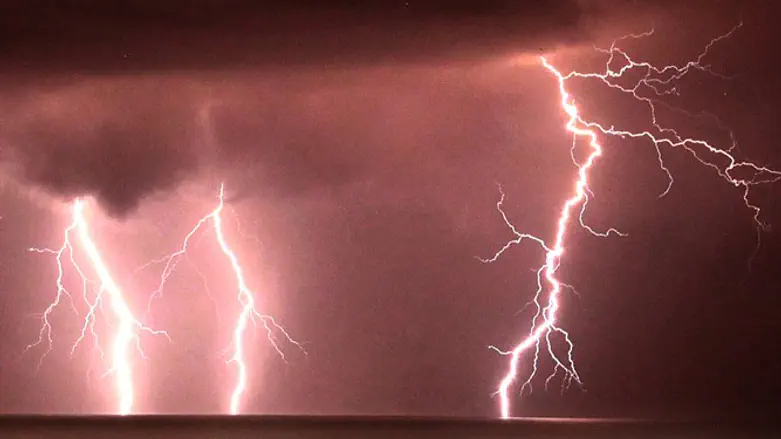
Translated from Rabbi Ginsburgh’s book, Or Yisrael, Part 2, p.69
Once, the Ba’al Shem Tov’s students sat before him, and he laughed a bit, in the manner of tzaddikim. His students asked the reason for his laughter and he said that in a certain city in a very far away land, a certain minister had been building a beautiful palace over many years. And just now, a tzaddik went to pray the afternoon Mincha prayer, and great hail began pouring down, forcing the tzaddik to take cover for fear for his life inside the palace. And when the tzaddik exited the palace and went to the synagogue, the palace fell.
And how will I not laugh over the great concealment of how this world is conducted, that the main purpose for this great building was for no other reason than to provide life-saving shelter for the tzaddik for just a short time. And through this tzaddik, all the stones and the sparks that were in them were rectified. So why should they continue to stand for no reason, and thus they immediately fell to the ground.
Afterwards, the newspapers wrote about the palace that collapsed for no apparent reason, and it had happened exactly at the same time that the Ba’al Shem Tov had related it.
Preface to the Besht on the Torah, 29
When somebody is being laughed at , he asks, “Are you laughing at me, or with me?” Laughing at somebody means to mock him for something unpleasant , to rejoice in his downfall. This would surely not be the conduct of the Ba’al Shem Tov. If he laughed at the collapse of the palace, this means that there was something about it that awakened his joy. The Ba’al Shem Tov found a kernel of true joy in the event that was appropriate to awaken laughter in everyone, including the minister, the builder of the palace himself.
Similarly, people tend to laugh when someone trips and falls. Laughter in a case like this is so natural, that we cannot assume that is is founded in a bad character trait. Chassidim said that laughing when someone falls brings about good, because when a person falls, it points to the fact that there was a Heavenly decree upon him. The laughter sweetens the severity of the decree.
If we laugh at a person who falls, this means that we see him as one and the same as the bad situation into which he fell, and we deepen the impression of the fall and the humiliation that was carved into his soul.
If we laugh with the person who falls, however, we have separated him from his fall. We see him as one of the collective, and together with him we sweeten the falling experience – from a feeling that it could have happened to any one of the other members of the collective.
The Ba’al Shem Tov’s laughter in the face of the falling palace is laughter of liberty, of casting off a heavy, unnecessary burden. This palace, the object of so much investment of time, effort and money, represents all the actions that we take in this world that are not for the purpose of serving God. After all, as written in Kohelet, everything under the sun is but hevel/vapor, and as such, it will eventually crumble and turn to dust.
This process of disintegration of matter will occur in any event. Thus, tzaddikim are always happy, for they have the merit to see with their own eyes how physical reality is actually born from ayin/nothingness.
